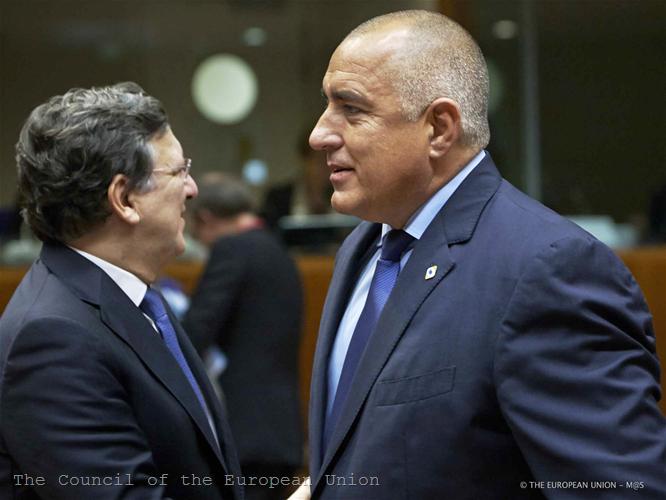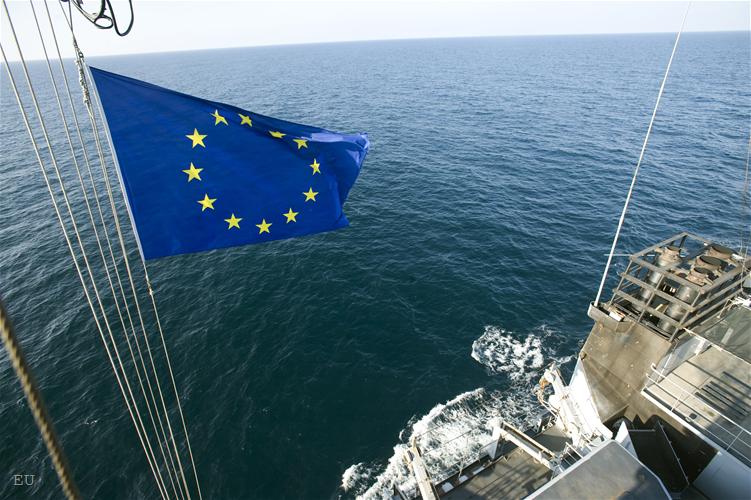Western Balkans and EU - Awaiting 2013
Dessislava Dimitrova, December 29, 2012
 There is a saying that one swallow does not bring spring. Single steps in the desired direction - too. This became evident after the last for this year meeting of the foreign ministers of the 27 EU member states and their decisions on the Western Balkans. It is precisely in spring next year, during the Irish EU Presidency, when the General Affairs Council is set to decide whether to grant date for starting accession talks with Serbia and Macedonia and negotiations on a Stabilisation and Association Agreement with Kosovo on the basis of the reports by the European Commission. 2013 will be a key year for Albania as well, because the outcome from the elections that will take place then will determine the future of the country on the accession path.
There is a saying that one swallow does not bring spring. Single steps in the desired direction - too. This became evident after the last for this year meeting of the foreign ministers of the 27 EU member states and their decisions on the Western Balkans. It is precisely in spring next year, during the Irish EU Presidency, when the General Affairs Council is set to decide whether to grant date for starting accession talks with Serbia and Macedonia and negotiations on a Stabilisation and Association Agreement with Kosovo on the basis of the reports by the European Commission. 2013 will be a key year for Albania as well, because the outcome from the elections that will take place then will determine the future of the country on the accession path.
And for Croatia this will be the year when the country will officially become the 28th member of the community. For Montenegro and Bosnia that will also be a challenging year - in the smallest Western Balkan country the new-old government of Milo Djukanovic will face a test and neighbouring Bosnia will have to make several strides at once if it wants to catch up with the rest of the countries in the region. As EU enlargement Stefan Fule summarised in the end of the meeting:
"This was a dynamic year for the enlargement process. Croatia is on its way to join the EU, Montenegro has started negotiations, Serbia is officially a candidate country. Under those conditions, this is a good perspective for the next year to continue with the same tempo: on the one hand by defining the main challenges and reforms ahead of the accession countries which they have to overcome, and on the other hand to show that the EU is ready to help them move forward toward EU membership after they have implemented the necessary criteria. This also shows how important trust in the process of enlargement is".
And although Serbia was not expected to get a date at that Council there is hope that by June next year that will happen. The ministers welcomed Belgrade's efforts in terms of the dialogue with Pristina and in Fule's words "this time there was no difference between words and actions". And in fact, in mid-December the first two border crossings along the border between Serbia and Kosovo have been opened as part of the agreement for joint border management, agreed by Belgrade and Pristina in Brussels, and by the end of the year another two border crossings are to be opened. Separately, there were comments that the two countries are ready to continue their dialogue without the mediation of the EU.
The minsters' expectations are precisely efforts in that direction to continue. Although in the conclusions the fight against corruption and organised crime is not explicitly mentioned, the Serbian government seems determined to demonstrate that it is moving forward in that regard too. A proof is the arrest of Miroslav Miskovic, considered to be one of the richest men in the country, who together with nine other people is suspected in involvement of privatisation deals with road infrastructure companies that robbed the treasury of almost 30 billion euros. By a similar move - the arrest of former premier Ivo Sanader on allegation of taking bribes - Croatia was also gaining points before Brussels and the result is at hand.
As a breakthrough in relations and an end of the "static dialogue" between Brussels and Skopje Fule defined the ministers' conclusions on Macedonia. "I hope this new and  ambitious dialogue will be adopted and understood as an opportunity to achieve a mutually acceptable solution in terms of the dispute about the country's name so that that chapter, left open for quite a long time, to be closed and to cease harming the people from the countries in the region". And while awaiting Summer 2013, Macedonia will have to continue with the reforms, including with the pointed as essential in the Council conclusions "maintenance of good neighbourly relations".
ambitious dialogue will be adopted and understood as an opportunity to achieve a mutually acceptable solution in terms of the dispute about the country's name so that that chapter, left open for quite a long time, to be closed and to cease harming the people from the countries in the region". And while awaiting Summer 2013, Macedonia will have to continue with the reforms, including with the pointed as essential in the Council conclusions "maintenance of good neighbourly relations".
Relations with neighbours and more specifically maintaining the dialogue with Serbia is the key for the future relations of the Union with Kosovo because progress in that direction will depend on whether during the next EU presidency negotiations can start on a Stabilisation and Association Agreement. To enhance dialogue, although this time political dialogue, the EU foreign ministers call on Albania as well because it is the political crisis in the country that has been hampering for several years now the decision the country to be granted an official candidate status.
"The doors to the EU remain open and the conclusions show the way Albania is expected to achieve progress towards its goal for European integration. Albania should continue with the reforms that will lead to implementation of the measures required by the Council in order for the country to receive a candidate status", Fule underscored and added that the ministers will come up with a recommendation for the European Council when "Albanian politicians make that possible for all of us". "I call on the Albanian politicians to accelerate dialogue and not to allow the EU agenda to turn into a victim of their personal political interests".
The common European goal behind personal interests is a strong message but a tough task to implement in the Balkans. The example: the best performer toward EU membership Montenegro, which last year managed to outrun all of the countries in the region and to start accession talks, is again facing the challenge "a new government - a new course of governance". In fact, at the helm of the government is the well known and longest ruling the country person in its newest history - Milo Djukanovic. However, everyone remembers his rule and the image the country had back then. That is why, the ministers' appeal is the country to continue upgrading on progress achieved as in the  fight against organised crime so in the area of rule of law where more reforms are needed.
fight against organised crime so in the area of rule of law where more reforms are needed.
More reforms, including in forming a stable government, are the conditions Bosnia has to implement in order to stop being the laggard in the region in terms of progress toward European integration. What will 2013 bring for the countries in the Western Balkans we will see, but it is clear that even if we witness the start of accession talks with some countries in the region they will be much different from the model that was followed until now. Because, in the words of German Chancellor Angela Merkel recently, only via a thorough check whether every candidate is capable of implementing the set criteria it can be seen whether in Europe there really are European standards and values.
 | © European Parliament
| © European Parliament | © The Council of the European Union
| © The Council of the European Union Bakir Izetbegovic, Andrej Plenkovic | © Council of the EU
Bakir Izetbegovic, Andrej Plenkovic | © Council of the EU Aleksandar Vucic, Recep Tayyip Erdogan | © Serbian Presidency
Aleksandar Vucic, Recep Tayyip Erdogan | © Serbian Presidency Jean-Claude Juncker, Zoran Zaev | © European Commission
Jean-Claude Juncker, Zoran Zaev | © European Commission | © EU
| © EU